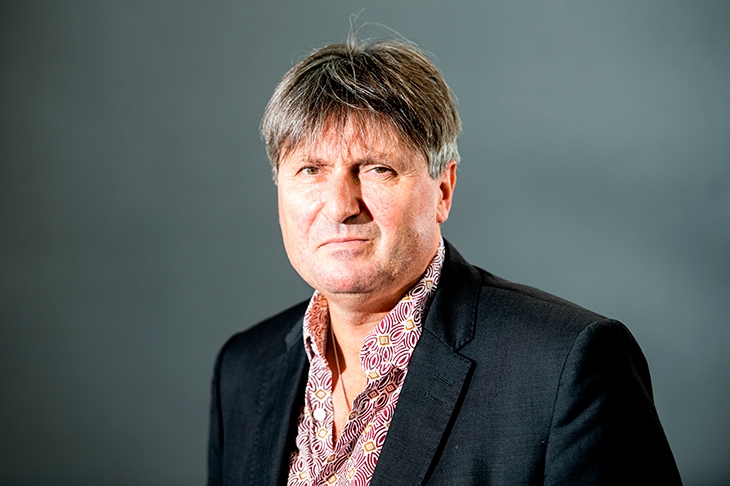Ezra Pound in ABC of Reading: ‘Dichten = condensare.’ Meaning poetry is intensification, ‘the most concentrated form of verbal expression’. Simon Armitage saying the same thing, memorably, genially, metaphorically, democratically: ‘How much power and force could be stored in — and retransmitted by — such compact shapes. Poems as the Duracell batteries of language.’ Both poets go straight to the point. But a shift has taken place — in tone, in attack — which can be illustrated also by the photographs Armitage found as a ‘sleep-walking’ teenager leafing through Worlds, a sampler of seven contemporary poets, edited by Geoffrey Summerfield: ‘Norman MacCaig watched television and smoked fags.’ We are in the recognisable world.
In these 12 attractive lectures, delivered when he was Oxford Professor of Poetry, Armitage typically, insouciantly, takes whatever is to hand, whatever seems to do the job, however inappropriate. Here he is on the dashes in Emily Dickinson’s poetry:
an elevated form of musical notation, creating momentary suspensions; little leaps and trapezes; wing beats; airborne cognitive deferrals; miniature magic carpet rides; or micro-journeys on the palm of the poet’s hand, during which the reader glides from one idea to the next without ever touching the floor, without having to steeplechase along a series of commas, pause at the amber light of a semicolon, totter over the cattle grid of an ellipsis or be wheel-clamped by a full stop.
In its headlong invention and fluency, you see the influence of Ted Hughes, an old admiration of Armitage.








Comments
Join the debate for just $5 for 3 months
Be part of the conversation with other Spectator readers by getting your first three months for $5.
UNLOCK ACCESS Just $5 for 3 monthsAlready a subscriber? Log in